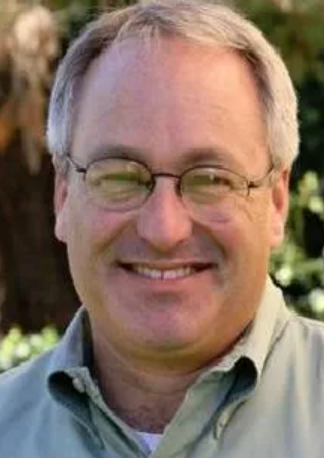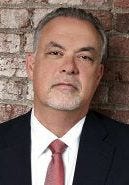Channel Partners will host its first ever Agent Peer Group next month. Get a sneak peak of the topics.

The modern technology sales agent must navigate talent shortages, increasingly complex technology, and issues with the FCC rural health care program.
These are some of the topics partners will discuss at the Agent Peer Group at the upcoming Channel Partners Conference & Expo, April 11-14, in Las Vegas. IQ Wired CEO Darcee Nelan, The Alliance Partners CEO Bill Power, V1 Data Communications CEO John Griffin and Top Speed Data vice president of technology Allan Jaffe will lead the discussion.
They’re officers and board members of the Technology Channel Sales Professionals (TCSP) watchdog group, which they formed in 2020 out of a need to represent the industry to the Federal Communications Commission (FCC). For now, the group is looking to mend a ruling that has threatened the commissions agents earn on health care deals.
In this session preview, Griffin, Jaffe, Nelan and Power share their thoughts on the opportunities and challenges facing agents.
Channel Futures: What is one of the biggest challenges facing agents in 2022?

IQ Wired’s Darcee Nelan
Darcee Nelan: The labor market will continue to be a challenge for agents in 2022. A myriad of factors including COVID, supply-chain issues, baby boomers retiring and people staying home to take care of their families has resulted in low labor force participation in United States, making it more difficult for companies to find and maintain top talent. While the U.S. economy is expected to grow by 4% in 2022, on the heels of a 5.7% growth rate in 2021, demand is strong but the supply of top talent is low.
See and hear from more than 100 top speakers at the Channel Partners Conference & Expo/MSP Summit. Register now to join 6,500 fellow attendees, April 11-14. You can also interact with more than 300 key suppliers and technology service distributors. |

V1’s John Griffin
With millions of people changing jobs, many of the providers that we work with have experienced massive employee turnover, making it more difficult and time-consuming for us, as agents, to deliver their products and services to our clients. This puts additional pressure on agents financially as our cost of goods sold increases while our commissions percentages are fixed. Since by nature, agents are focused on providing a better customer experience, I expect we will have our work cut out for us this year.
John Griffin: It’s the continuation of a theme. Disruptive technologies continue to dramatically reshape the revenue environment (public network replaces private, SIP/UCaaS replaces PRI) and the old-school network services are no longer sufficient to make a meal.

Top Speed Allan Jaffe
Allan Jaffe: Succession planning. Many agents started their businesses over 20 years ago in the middle of their careers. How do they want their agencies to continue when they’re ready to slow down or stop?
Bill Power: Staying focused in light of all the distractions present. I talk with so many agents who are intrigued with the possibility of a big M&A payday. There’s certainly a lot of activity going on right now, and the time may be right for some agents to sell or partner in some way with another entity, but I encourage folks to keep their eye on the ball and continue to grow their businesses in a smart way as they explore their exit options.

The Alliance’s Bill Power
CF: What do partners need to know about the FCC rural health care policy?
DN: In the interest of ensuring “fair and open competition,” the Federal Communications Commissions (FCC) issued an order that became effective on July 1, 2020, prohibiting service providers (carriers) from compensating third-party consultants (agents) for any new services ordered on behalf of not-for-profit health care providers (HCPs) that are reimbursed under the Rural Health Care program (RHC).
Unfortunately, the FCC Order has proven to be overly broad causing significant confusion among the carriers as to which services qualify under the program and whether agents should continue to receive commissions for services that were sold prior to July 1, 2020. This has led to some providers to cease paying commissions …
… overnight for services that technically should have been grandfathered in, prior to the effective date of the order. As a result, many agents lost up to 30% of their commissions overnight.
Even more confusing is the name rural health care. Most agents assume that if they aren’t working with rural hospitals that this prohibition won’t affect them or their commissions. Unfortunately, the FCC allows for urban hospitals to participate in the program if they file through a consortium that includes a ratio of at least 50% of rural hospitals; therefore, many HCPs are receiving funding through the RHC program even though they are in urban areas versus rural. Many agents don’t realize that their clients are participating in RHC and could find themselves in a position where compensation is clawed back from them if the service providers realize that these urban hospitals are indeed participating in the RHC program; or worse, there could be fines imposed on the service providers that could ultimately trickle down to the agent community.
In an effort to correct what we perceive to be an unintentional regulatory overstep, many of the top agents in the country banded together to form an association for the agent community called the Technology Channel Sales Professional Association (TCSP). The TCSP hired an attorney to petition the FCC to narrow the scope of the order to exclude TCSP agents since we are not engaged in the RFP process that the FCC is concerned with. Hopefully we will be victorious in our efforts to overturn the FCC order the near future.
JG: Partners need to know two things. First, there’s more at risk than health care. The reason behind the ban on agents was due to the FCC’s perception that agents are counter to a fair and open bidding process. They believe we are paid to administer an RFP and also take commissions from the provider we award the bid to. Unless corrected, that lack of understanding will most certainly bleed over into bans and restrictions with other programs and regulations. Second, the risk on health care customers is not rural. Instead of the Rural Health Care Program, it should be called the Anywhere Health Care Program. Urban hospitals can participate so long as they file under a consortium and at least 50% of the total locations are rural. If your customer is in health care, you could lose your earned residuals instantly.
AJ: If you are selling to any health care provider, you should know that they could be participating in the FCC’s RHC program. That means you could be blocked from selling to those clients in the future, and the money you’ve already earned could be taken away.
BP: First and foremost, partners need to get educated about the issue. It’s far deeper and wider than just rural health care. As Darcee, John and Allan explained, virtually any health care-related customer can be a part of the “prohibited customer” universe, and once providers wake up and understand their regulatory obligations, commissions on all of those customers can just disappear. Of even greater concern, providers can be fined enormous amounts by the FCC and the language in most partners’ contracts with those providers say the agent is responsible for those fines. We’re talking about millions of dollars of exposure.
CF: What’s one thing agents can do to future-proof their business?
DN: Add value. Remember that different segments of the market require different levels of support and attention. Know where and how you can add value. The more value you add to whichever market segment you are focused on, the more likely you are to maintain your relationships and your revenue in the future.
Understand your client’s goals and initiatives: Most agents recognize that it’s our role to stay current on technology trends, but as a strategic partner our clients expect us to not only understand the technology but understand how our recommendations will positively or negatively affect their businesses.
Embrace continuous improvement. With many agents turning to mergers, acquisitions and private equity funding to grow their businesses, agents who choose to go it alone will be faced with ever increasingly sophisticated competitors. Our ability to compete and add value will be determined by our willingness to embrace continuous improvement in all areas of the business.
JG: Get smarter. Embracing multiple smart technologies is a path to divest in network business. I’m a fan of continuing education around cybersecurity and providing those types of solutions for my customers. I can’t imagine demand slacking for solutions that address the NIST framework.
AJ: Cloud, cloud, cloud! If you’re only talking to your clients about voice and data transport, you should consider retiring soon. Learn about anything “aaS” so you can remain a valuable resource to your clients.
BP: When I first got into the business in the early ’90s, agents were considered by carriers to be a necessary but unwanted and unappreciated player. Today, the environment is totally different. Agents are the stable force in the channel and are delivering incredible value to their providers. Imagine the power of agent nation if we all came together for the benefit of the whole. That’s what we’re trying to do with the Technology Channel Sales Professionals Association. It’s time the agent world came together as a unified voice in the channel.
Want to contact the author directly about this story? Have ideas for a follow-up article? Email James Anderson or connect with him on LinkedIn. |
Read more about:
AgentsAbout the Author(s)
You May Also Like


